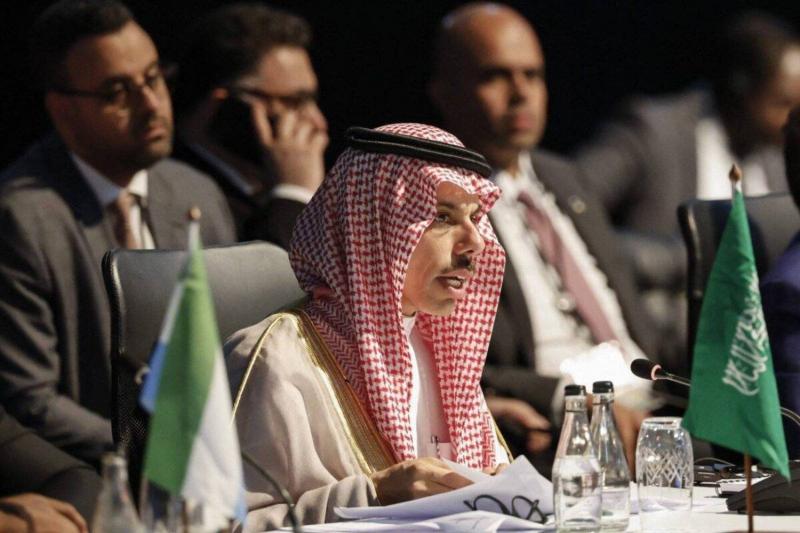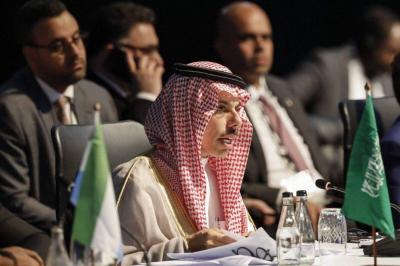The invitation from BRICS for Saudi Arabia, with its oil power, to join the bloc highlights the Kingdom's ambitious efforts to become a significant force on the global stage. This ambition contrasts with its long-standing alliance with the United States, previously seen as solid and difficult to impact or undermine.
Foreign Minister Prince Faisal bin Farhan stated on Thursday that the Kingdom looks forward to more cooperation with BRICS countries after the group invited Saudi Arabia, the UAE, Iran, Egypt, and Argentina to join. Speaking at the BRICS summit, the Saudi foreign minister expressed that Saudi Arabia aims to develop cooperation to create new developmental and economic opportunities and elevate relations to the desired level.
Saudi Arabia, one of the most powerful and influential Arab countries, along with the UAE, is charting its own course amid concerns that the U.S. has shown less commitment to security in this strategically important region. Jim Krane, a Middle East researcher at the Baker Institute at Rice University in Houston, noted that we see Saudi Arabia ignoring American interests in several areas, including the Saudi-Russian partnership in the oil market, strengthening ties with China, and multiple instances where the Kingdom refused to increase oil production when Washington requested it.
China, the largest consumer of Saudi oil, is leading calls to expand the bloc of emerging market powers, which currently consists of Brazil, Russia, India, China, and South Africa, to balance Western influence. In a reflection of geopolitical shifts, Saudi Arabia hosted Chinese President Xi Jinping in December after U.S. President Joe Biden failed to convince the Kingdom to increase oil production during his visit to curb high gasoline prices in the United States.
Krane pointed out that pricing oil in currencies other than the dollar is a significant concern for Washington. He added, "China has been urging Saudi Arabia to price oil in renminbi (yuan) for some time. The Biden administration is monitoring this issue within the framework of the Abraham Accords." Thus, it seems that the Kingdom is in an enviable position, balancing between Beijing and Washington, choosing the side that offers the greater reward.
The Abraham Accords are agreements brokered by the U.S. to normalize relations between Israel and the Gulf states of the UAE and Bahrain. Ihem Kaleel, head of the Middle East and North Africa Division at Eurasia Group, said "the Saudi leadership considers BRICS one of the important blocs that deserves greater attention from Riyadh, given the importance of China and India in the global system." He added, "However, Riyadh is not solely focused on BRICS; it views the G20 and other forums as key to the Kingdom's strategy for increasing its geopolitical influence."




